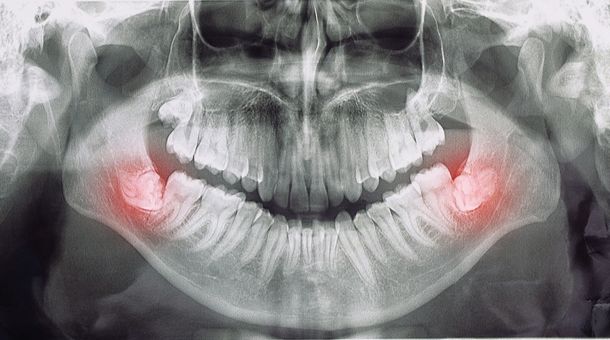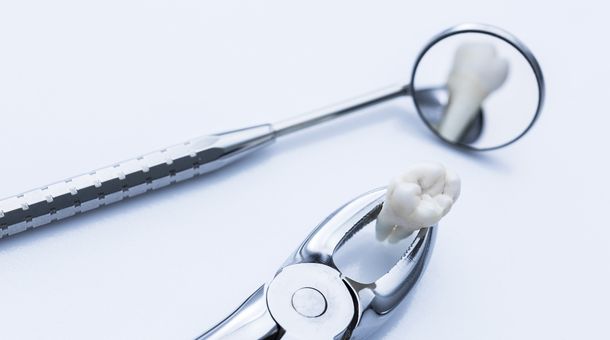Wisdom teeth are the third molars at the back of your mouth. They come in pairs and are usually the last teeth to erupt.
Many people are anxious about getting wisdom teeth extracted, but it’s not as bad as many think. Many ways to reduce your Pain during extraction include taking ibuprofen and using a numbing agent during surgery.
Many people believe that wisdom teeth removal is painful and can be quite a complex process, but this is not necessarily true. Many ways to reduce your Pain during extraction include taking ibuprofen and using a numbing agent during surgery.
What are the Benefits of Wisdom Teeth?

Many see wisdom teeth as a nuisance because they often grow crooked or at an angle, causing Pain and difficulty chewing.
The benefits of wisdom teeth include:
- They protect the other teeth from being damaged by the roots of wisdom teeth
- They provide space for other molars to grow
- The roots of wisdom teeth help to prevent jawbone loss
- They provide space for other molars to grow
- The roots of wisdom teeth help to prevent jawbone loss Wisdom teeth are not well developed, leading to a smaller jawbone
- This is because they still need to be fully grown
What is the Best Way to Prevent Pain and bleeding When Getting Wisdom Teeth Out

Taking the Pain and bleeding seriously is important when getting wisdom teeth out. Some people try to tough it out and deal with the Pain and bleeding themselves, but that can lead to many problems. It is best to seek medical attention as soon as possible.
Other teeth often impact wisdom teeth in the back of the mouth, so it is not uncommon for them to cause Pain when removed. They also can be impacted by bone, which makes them harder for doctors to remove without causing damage or injury.
The 5 Most Common Complications while having Have Wisdom Teeth Removed

People with wisdom teeth struggle with having them removed. Some complications people face during the process include bleeding, infection, and Pain.
The following are the most common complications while having wisdom teeth removed:
Bleeding:
This is the most common complication while having wisdom teeth removed. After they are removed, there is a risk of excessive bleeding that can cause anemia and fatigue.
Infection:
With wisdom teeth being impacted in the jawbone and not the gums, cleaning properly during extraction can be difficult. The risk of infection increases when they are not appropriately cleaned or impacted in a location where bacteria can easily grow.
Pain:
Pain during extraction may be caused by nerve damage or inflammation due to improper cleaning and preparation before surgery.
Mouth numbness:
When the nerve that supplies sensation to the tongue is cut during surgery, there is a risk of a person experiencing temporary or permanent numbness in the mouth.
Toothache:
The risk of having a toothache increases with wisdom teeth. If it is caused by infection, it can spread to other areas in the jawbone or nearby tissues and cause Pain. That lasts for days or weeks. Wisdom teeth are removed to prevent complications, such as infection and tooth decay.
Top 5 Tips to Help You Avoid Complications After Wisdom Tooth Removal
1. Take it easy:
Don’t expect immediate relief from Pain, swelling, or bleeding. It may take a few hours to days for your mouth to feel better. Remember to drink plenty of fluids and moisten your mouth with a soft cloth or ice pack.
2. Stay away from pressure:
It is important to avoid pressure on your face for at least the first 24 hours after wisdom tooth removal, as this could cause complications like infection or bleeding under the gums. Your dentist will provide you with instructions about what you should do once you are feeling better again.
3. Use your pain relief therapy:
If Pain becomes a problem, you can use over-the-counter nonsteroidal anti-inflammatory drugs such as ibuprofen or naproxen to treat the Pain.
4. Take oral hygiene seriously:
It may take several weeks for your mouth to heal, so take good care of your oral health. Brush and floss daily and see your dentist regularly.
5. Don’t eat or drink:
Do not eat or drink anything from the mouth for at least 24 hours after surgery to avoid putting pressure on the surgical area that could cause bleeding or swelling.
What Are the Key Factors in Choosing the Best Dentist for Wisdom Tooth Extractions?
If you need a wisdom tooth extraction, you will want to find a dentist with the skills and experience necessary to get the job done.
The first step is to ensure that you clearly understand what type of extraction you need. There are different types of wisdom teeth extractions, so you must choose the correct one for your needs.
Once you have decided on which type of extraction you need, it is time to choose a dentist. The key factors in choosing the best dentist for your needs include location, cost, qualifications, and experience.

